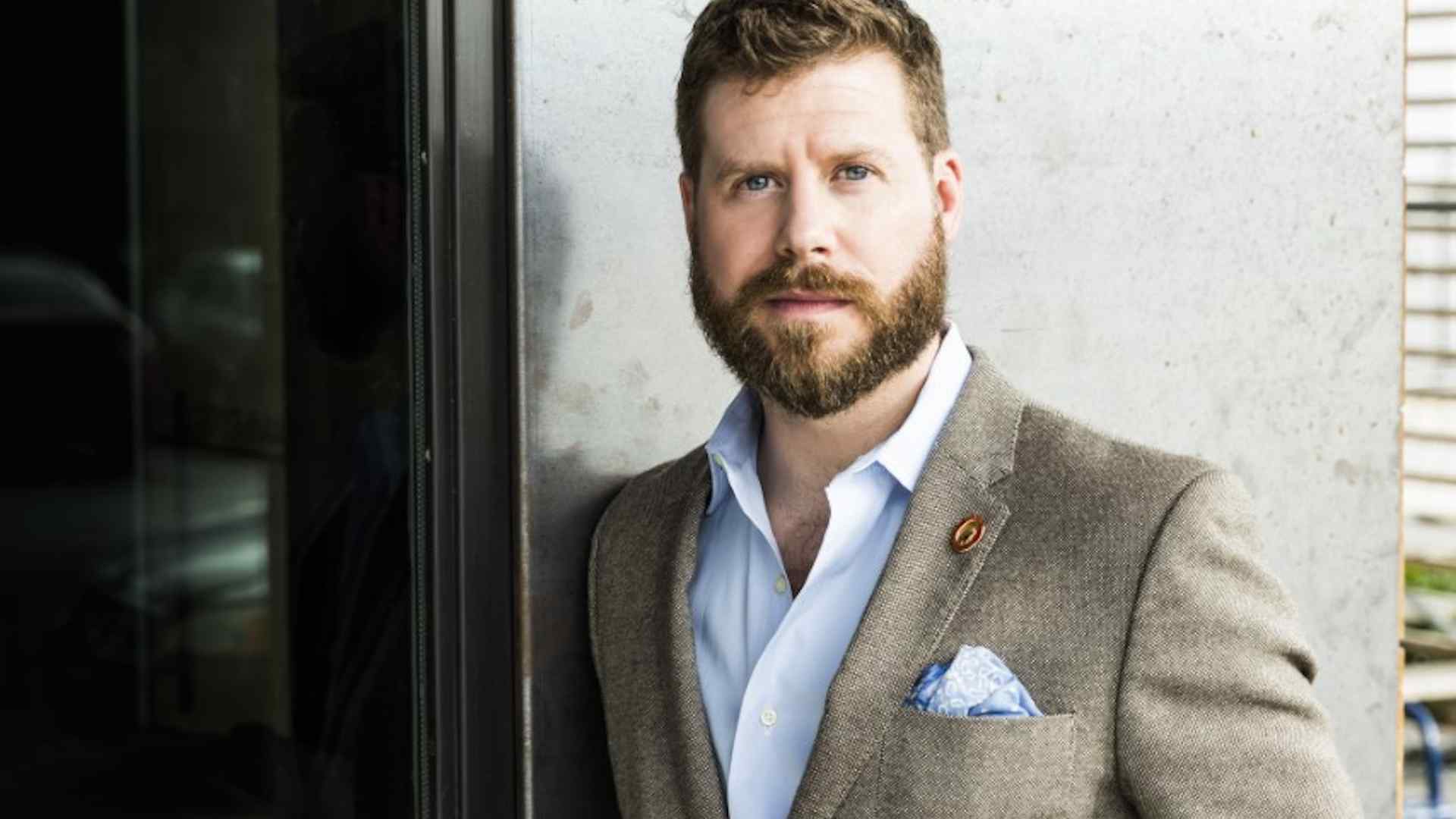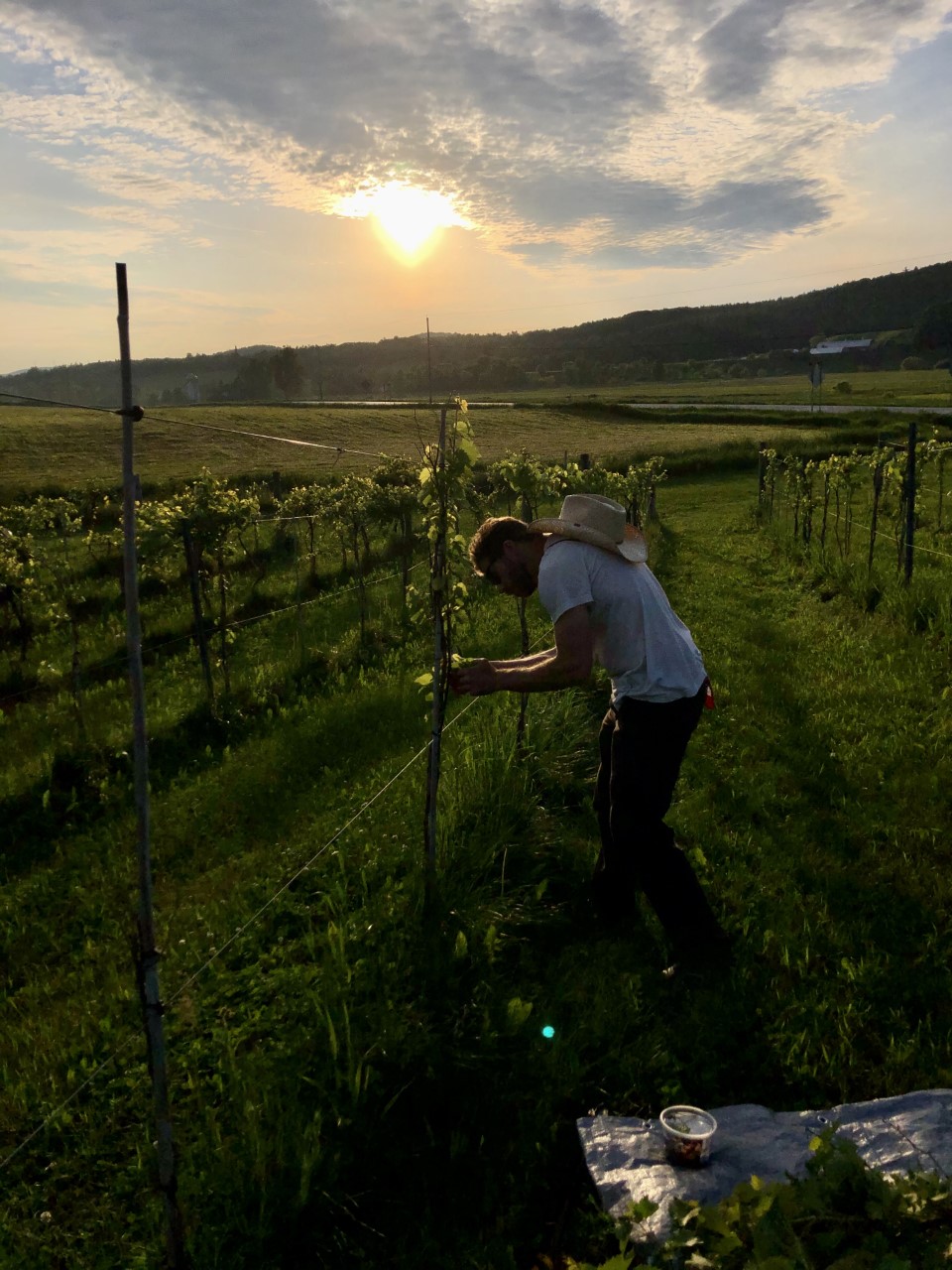
Voice Alum Becomes a Master Sommelier
By Joshua Simka
David Keck had completed his bachelor’s at Columbia before, in 2004, coming to study voice at Juilliard. To have attended that combination of schools puts a person in rare company, but Keck refined the concept of rare company when, in 2016, he became a Master Sommelier. According to the website of the Court of Master Sommeliers, Keck is one of just 269 wine professionals in the world who can claim that title—and he’s only the 149th American to have done so.
The path to the upper ranks of the fine wine world is rigorous. About 10 percent who set their sights on the prestigious Master Sommelier Diploma manage to pass the exams, which focus on theory, tasting, and service. (The dramatic 2012 documentary Somm follows a quartet of candidates who help each other prepare for the test.)

For all his education and years working in the wine industry, which is frequently caricatured as snobbish, Keck’s approachability and comfortable, down-to-earth attitude toward wine was as apparent as his expertise during a Zoom wine class he led in December hosted by the alumni office. “I take wine very seriously,” Keck told the group before delving into what he called Wine 101. “But I am aware that it’s fermented grape juice and I don’t put it on a pedestal,” he added, inviting participants to ask even the most basic questions.
Among the 37 alums and other community members participating was vocal arts faculty member Kenneth Merrill, whom Keck credits with setting him on the path toward a wine career. It was during a vocal coaching that Keck mentioned his wine interest to Merrill, an oenophile and wine collector whom Keck describes as “an awesome wine mind.” With bashful good humor, Keck recalled their initial conversation about his budding wine interest, comparing himself to a singer drawn to opera by a famous pop-operatic tenor: “If you’re starting as an opera singer and you’re talking to somebody who’s actually already established in the business and you’re like, ‘I love Andrea Bocelli.’ And they’re like, ‘that’s great!’ Let’s talk about some other singers you should listen to.”
After Juilliard, Keck continued his vocal studies at Rice University and worked at a Houston wine bar on the side. When he finished his degree, in 2010, he took stock of his options. They included singing auditions in Europe, but having recently sat an intro course with the Court of Master Sommeliers, he felt drawn to pursue the wine route.
Over the next six years, Keck made a name for himself in Houston while undergoing the grueling process of becoming a Master Sommelier. By February 2020, Goodnight Hospitality, a local restaurant group he’d co-founded—its concepts were as diverse as a Texan honky-tonk, a trendy Italian restaurant, and a cheese and wine shop—was doing well. But Keck was ready for another project, so he divested his holdings in Goodnight Hospitality and relocated to his home state of Vermont. His timing in getting out of the restaurant business ended up being fortuitous as just weeks later, COVID-19 would lead to widespread shutdowns and stay-at-home orders that have had disastrous effects on the hospitality industry. “I feel like musicians and restaurant professionals have a lot in common right now,” Keck said in a recent conversation with the Journal, “because the pandemic really decimated the industry. People are struggling. We’re looking at probably one in six restaurants in the United States closing as a result of this.”
In Vermont, Keck has been working on an entirely different side of the wine world—as a producer. He leased and spent most of last summer tending eight acres of vineyards. So far he’s made about 500 cases, which if all goes according to plan he hopes to distribute in Vermont, Texas, and New York under the Stella14 label. And when it’s ready, his first glass will be well-deserved. “Vermont is still very much a fringe grape-growing region with its cold winters and short growing season,” Keck said. “As a result the most successful wines are made with hybrid grapes bred to withstand the winters, and grape growers are forced to be very flexible with the challenges we’re thrown in any given year.”
During the Zoom wine tasting, Keck talked about the similarities between the multidisciplinary fields of wine and music, acknowledging that artists tend to have diverse interests and curiosity. “Studying wine is studying culture and history. It’s studying molecular biology. It’s studying climate change and geography, geology, and all these things,” he said. “Understanding and tasting wine is very much informed by a kaleidoscope of other fields, so for those of us with intellectual ADD—‘I need to study a new thing now’—wine is fantastic for that.”
Joshua Simka (BM '14, voice) is the assistant editor of the Journal